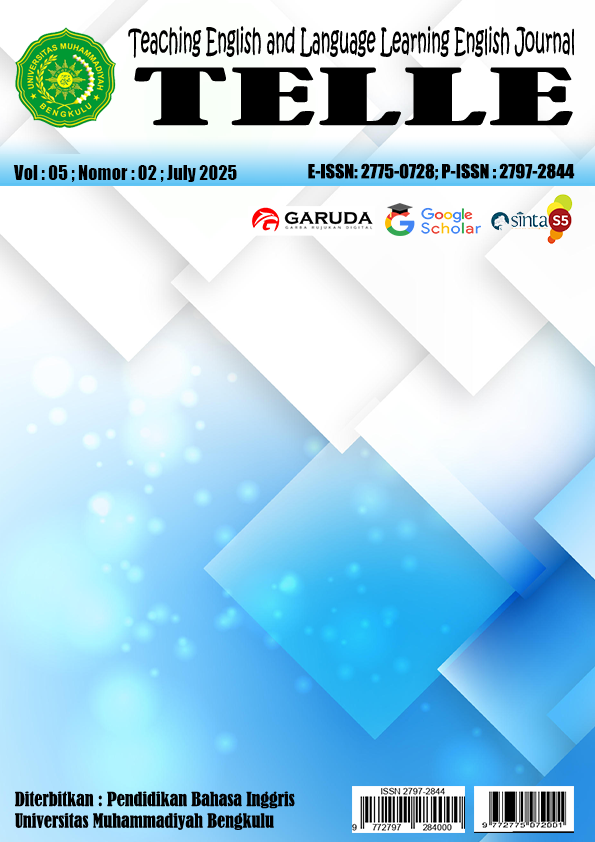THE IMPLICATION OF LINGUISTIC PARADIGM SHIFT IN DIGITAL COMMUNICATION OF GENERATION Z TOWARDS INDONESIAN LANGUAGE PRESERVATION
DOI:
https://doi.org/10.36085/telle.v5i2.8512Abstract
The linguistic paradigm shift that occurs in Generation Z (Gen Z) in the digital era has significant implications for communication practices and efforts to preserve the standard Indonesian language. Generation Z, who grew up in a digital and global environment, tends to use a relaxed, creative language style, and utilize abbreviations, acronyms, emoticons, and foreign terms in daily communication on social media and digital platforms. This phenomenon reflects an adaptation to the need for fast and expressive communication while also posing a challenge in maintaining the purity of the standard Indonesian language. This research highlights how digitalization and social media culture encourage shifts in language patterns, including the rampant use of non-standard language, code mixing, and the adoption of foreign terms that blur the boundaries between formal and informal language. Nevertheless, awareness of the importance of good and correct Indonesian remains, although it is often marginalized by the demands of instant digital communication. The implications of this paradigm shift demand adaptive language education and literacy strategies so that the preservation of standard Indonesian is maintained in the midst of digitalization and globalization. This research contributes to the understanding of Generation Z’s digital linguistic dynamics and the urgency of preserving standard Indonesian as a national identity in the era of digital communication.
Keywords: Generation Z, digital communication, linguistic paradigm, standard Indonesian language





